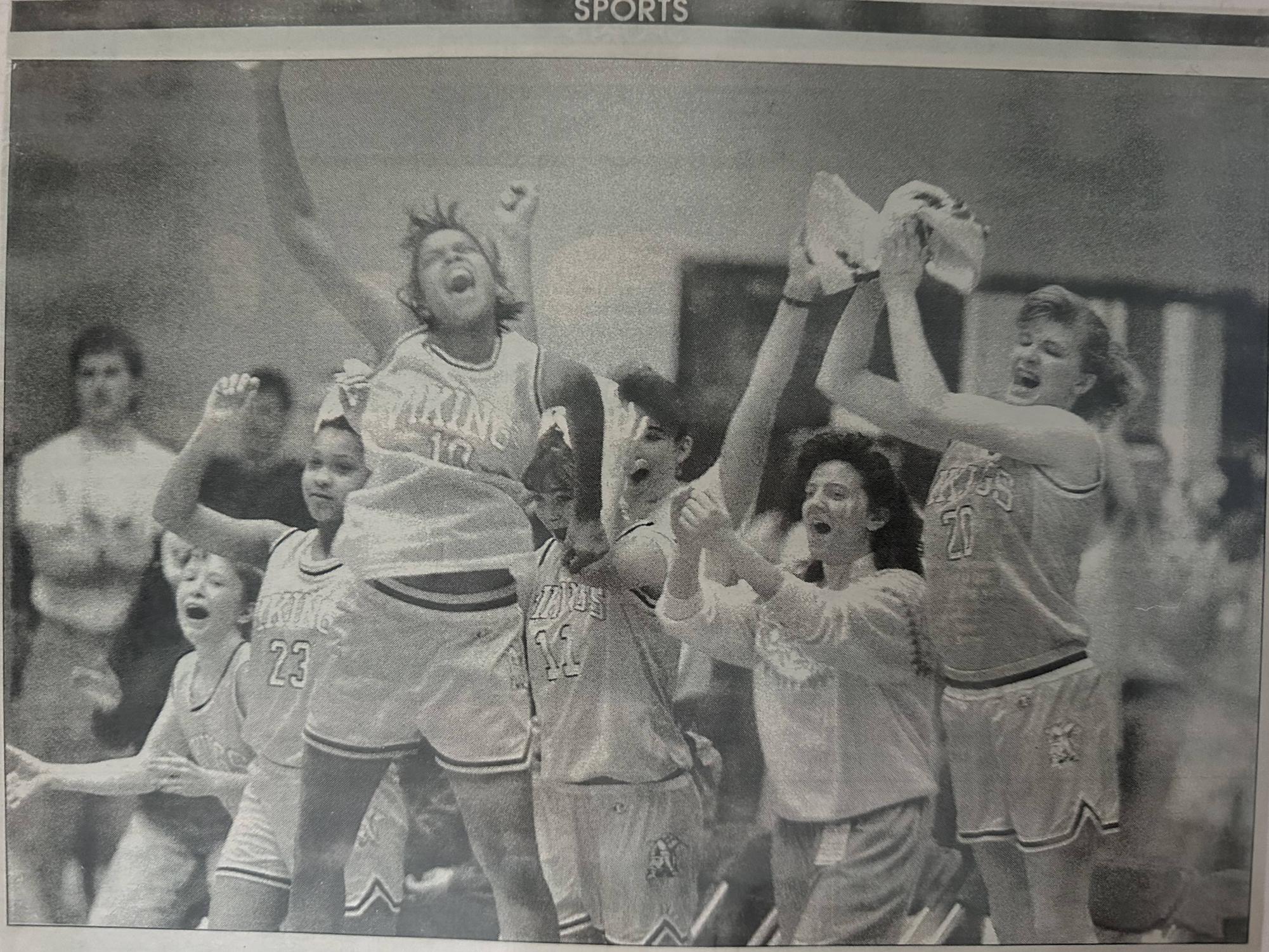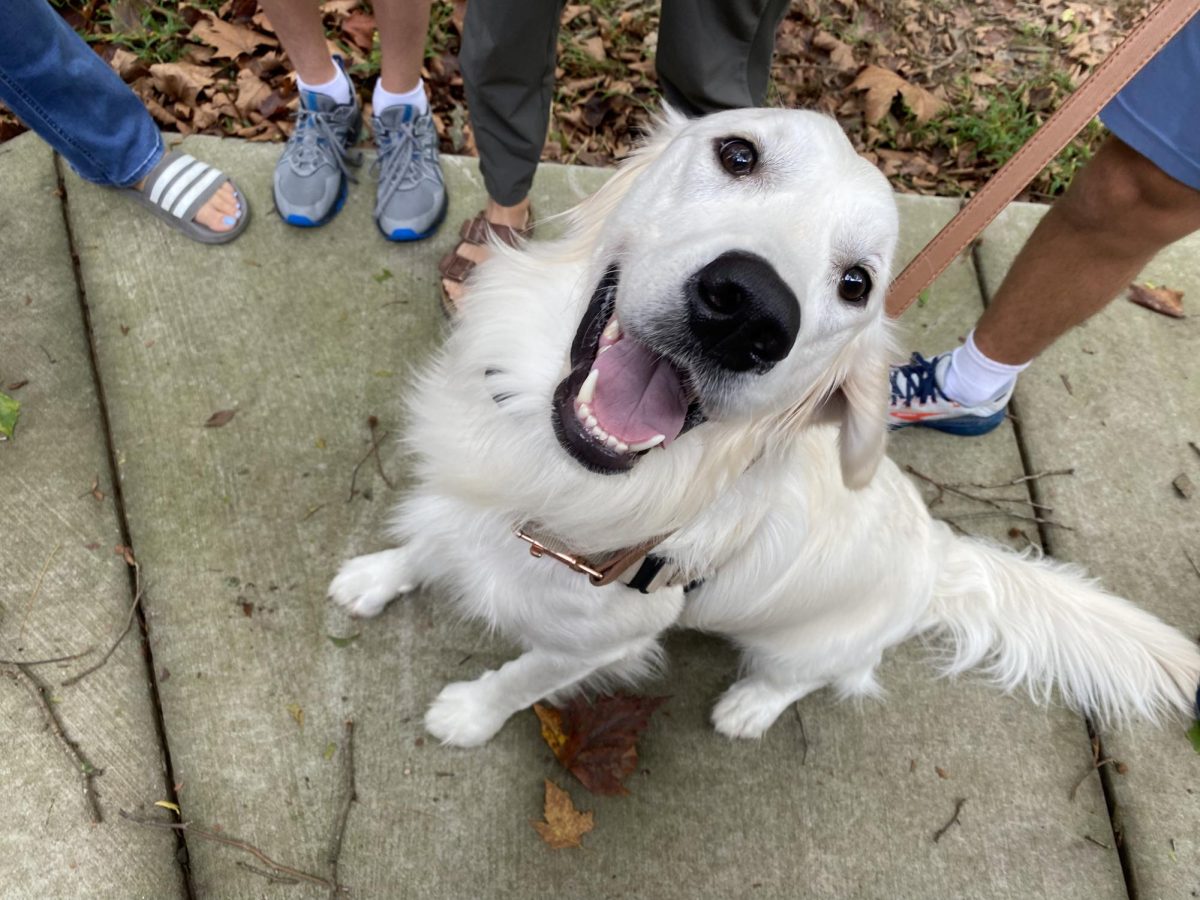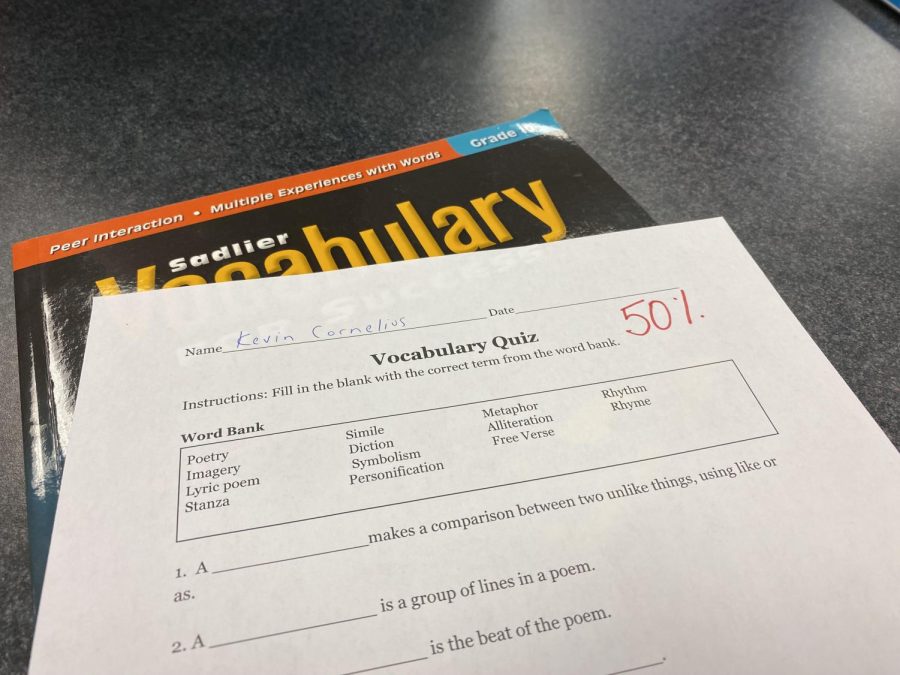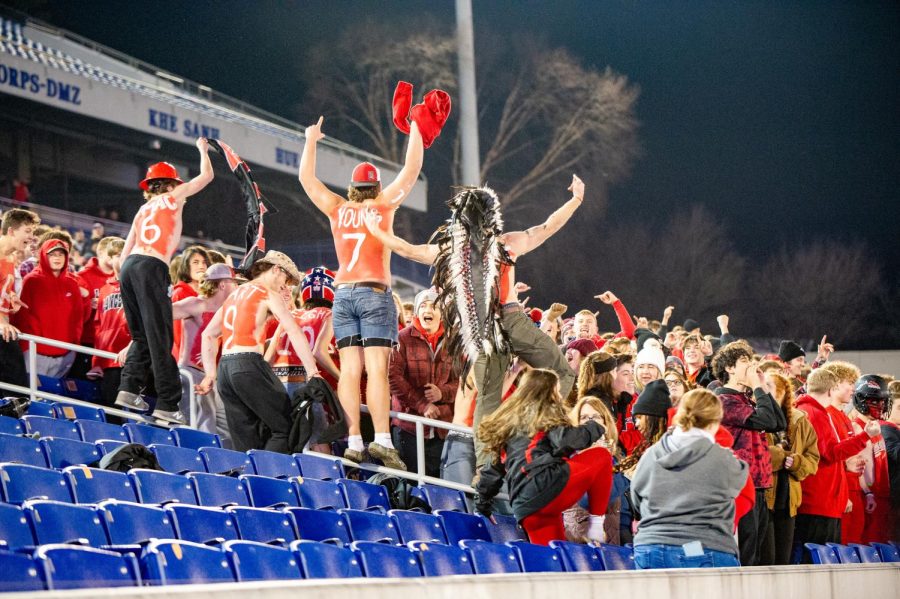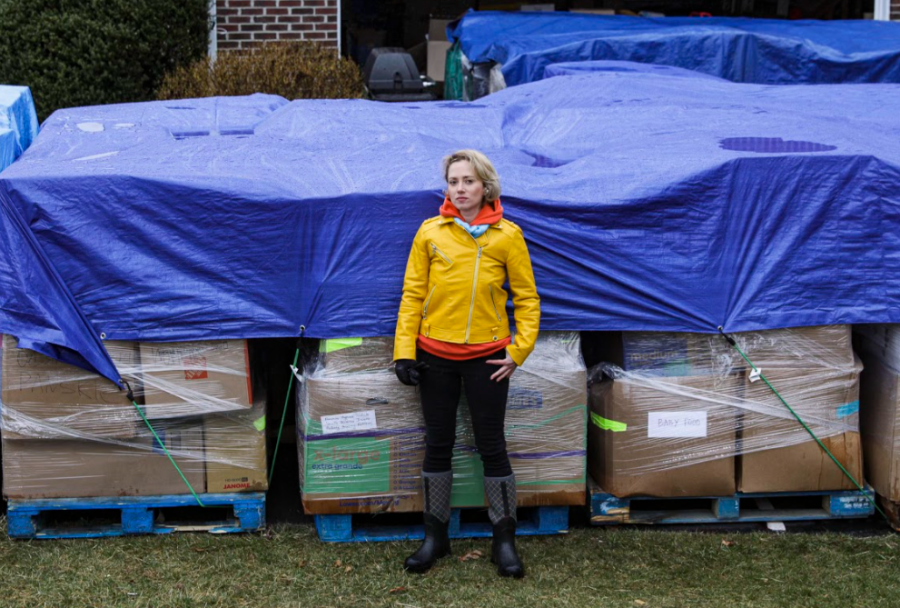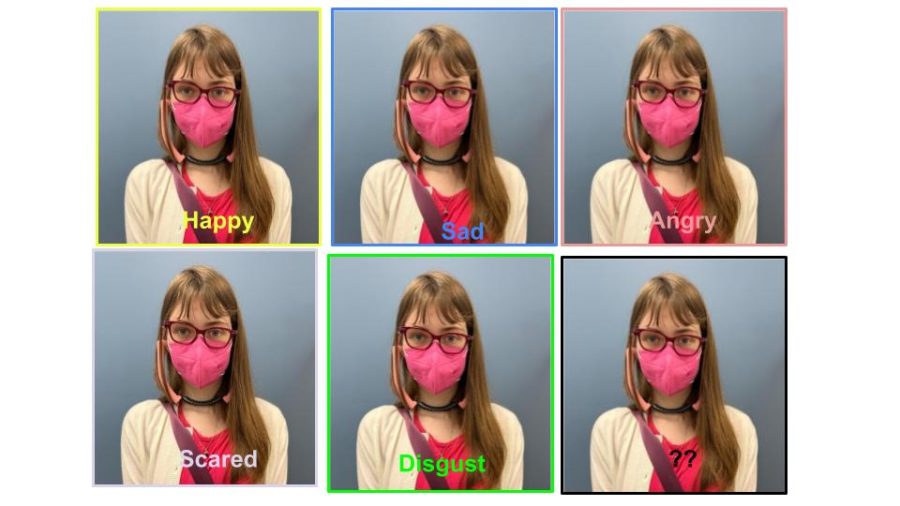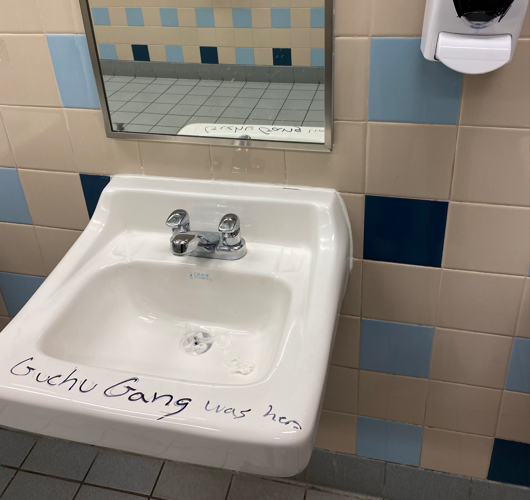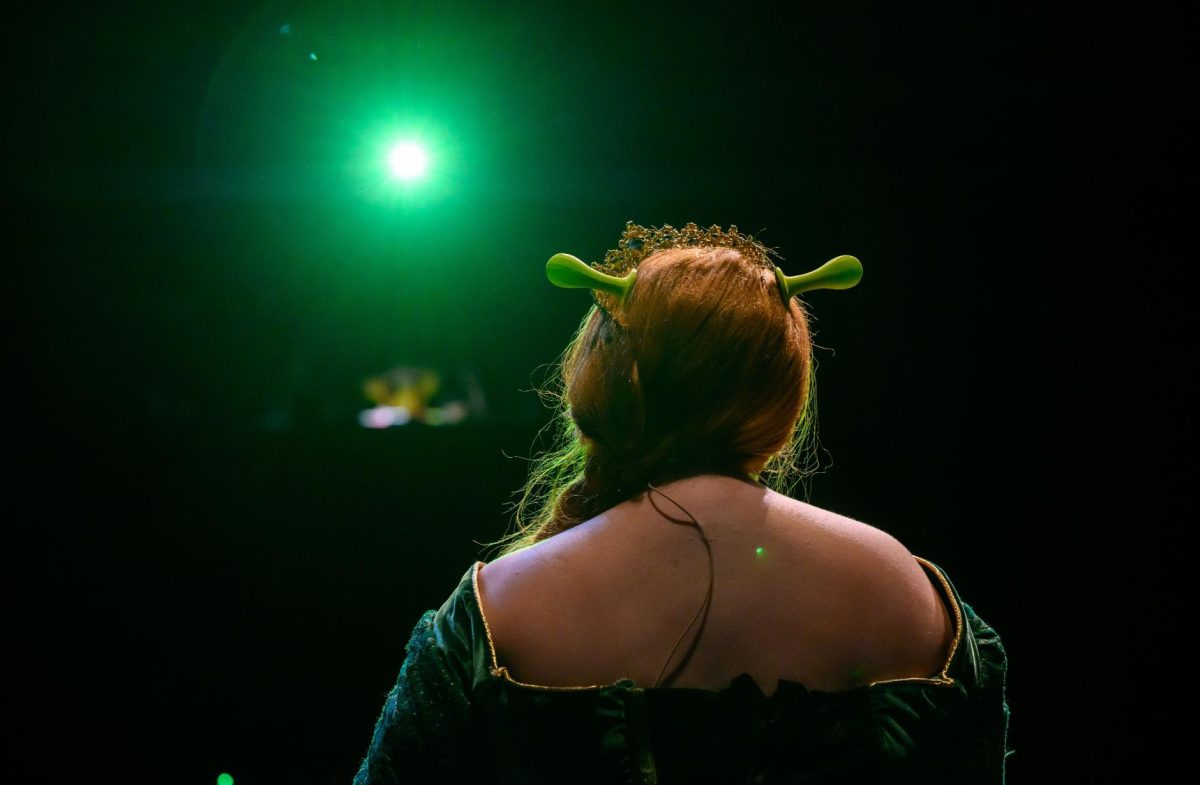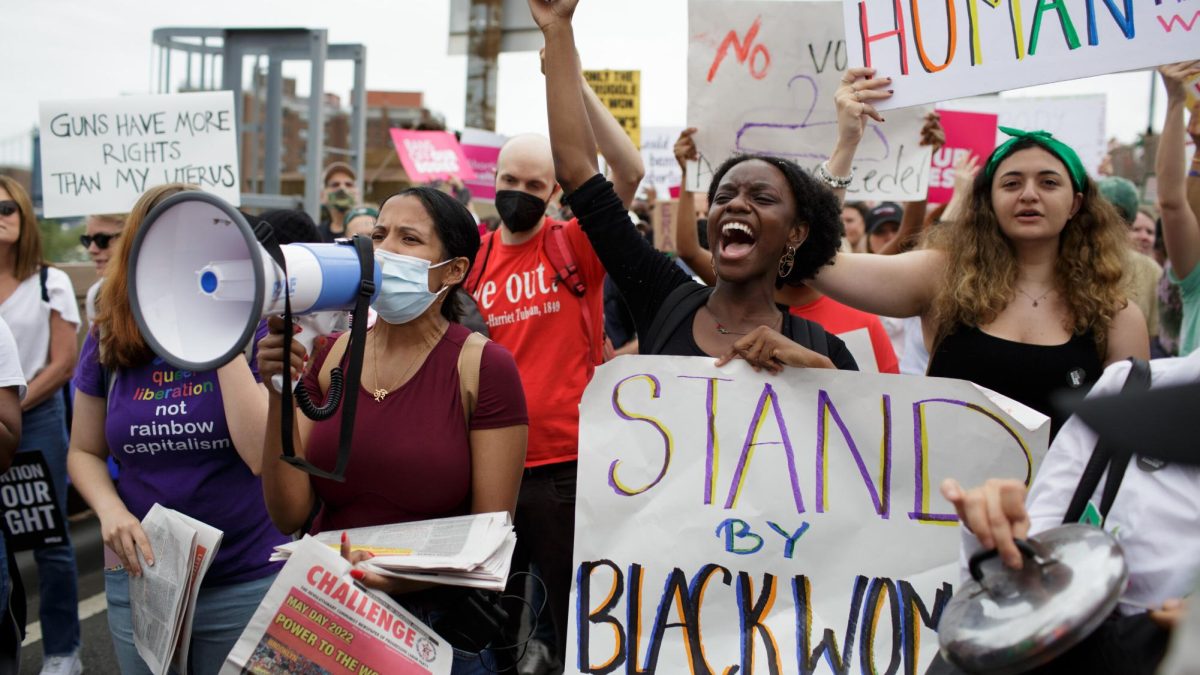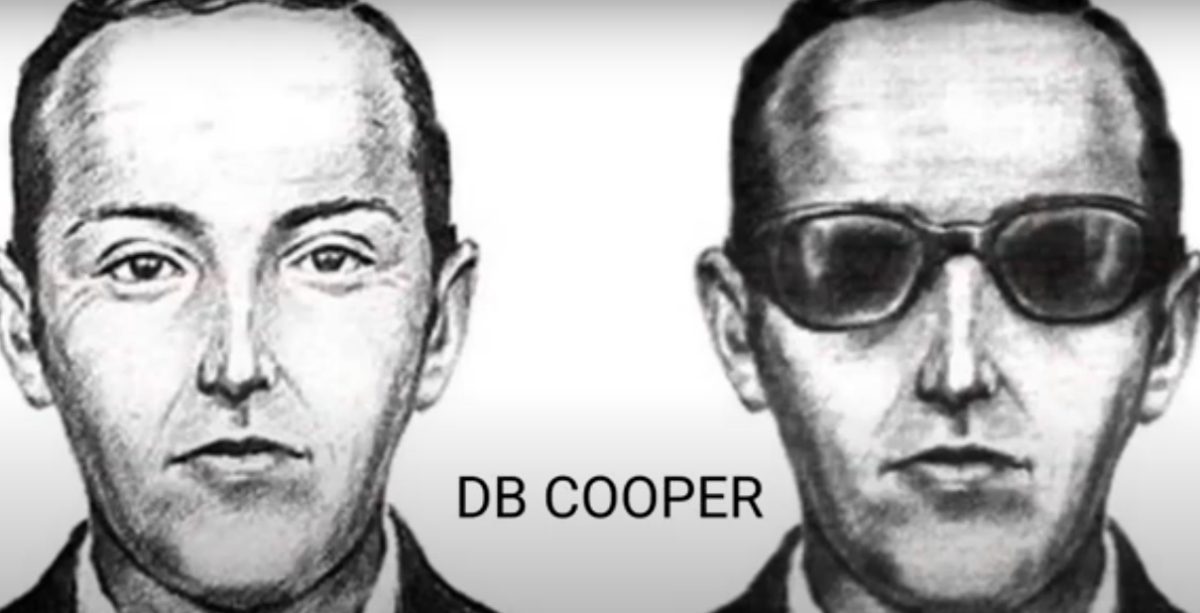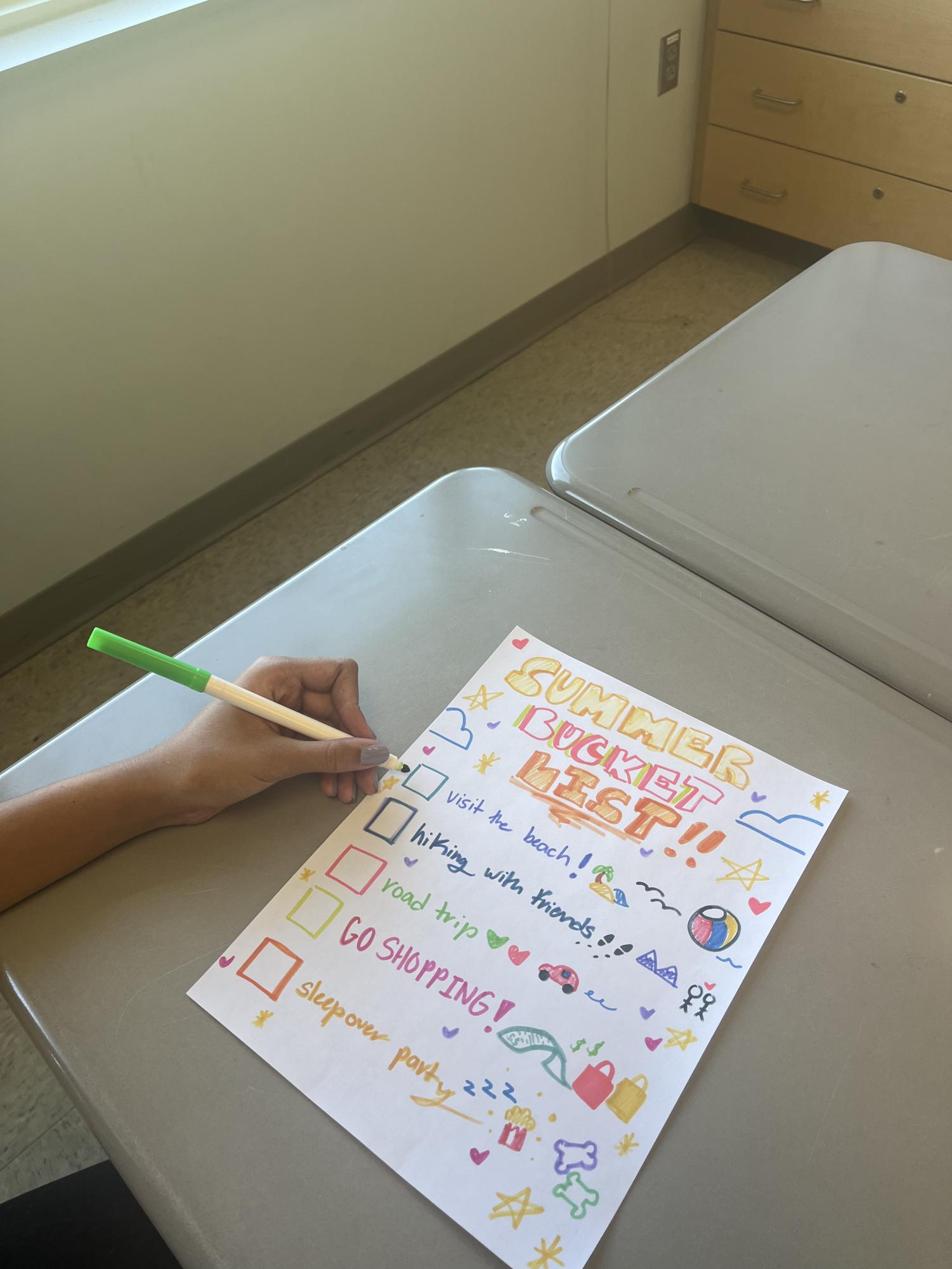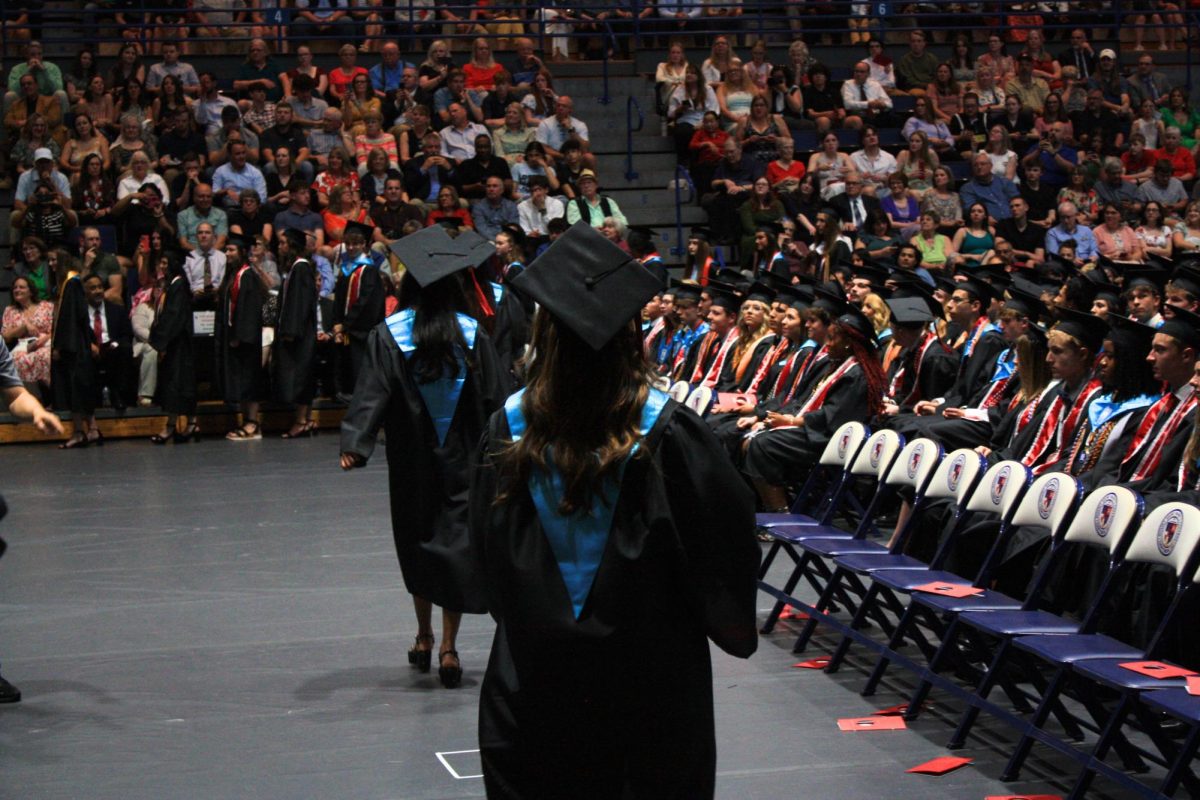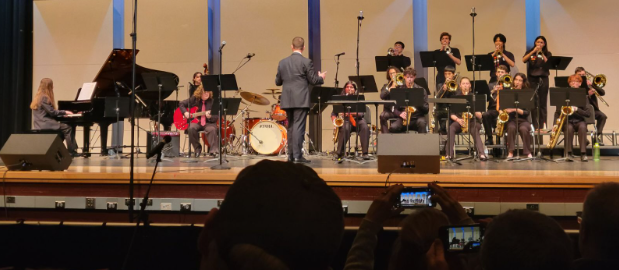“I didn’t know what, but I knew something was wrong,” said Tammy Webster, former basketball star and paraeducator.
Webster first began to notice signs that something was off when she was playing basketball and exercising.
“I couldn’t walk right, I was tripping, I couldn’t grip things,” said Webster. “I was playing in basketball leagues, and I started to have trouble running … [it] felt like I had bricks on my legs.”
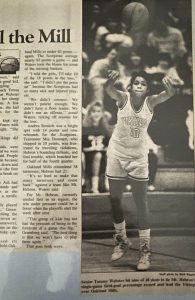
Webster was diagnosed with amyotrophic lateral sclerosis (ALS) nine years ago in late 2014. ALS is a neurological disorder that attacks the nerve cells in the brain and spinal cord that control muscle movement and breathing. In most cases, there is not a cause behind the development of the illness; it just happens by chance.
The main symptom of ALS is muscle weakness, such as what Webster first experienced, as well as loss of motor control. There is no treatment to reverse damage already caused, and there is no current cure for the disease.
ALS first became widely-known through its affliction of Lou Gehrig, a famous baseball player diagnosed with the condition in 1939.
As an athlete, Webster understands the mental and physical turmoil of having the ability to be active and independent taken away. Going from being an athlete in one’s prime to being completely wheelchair bound is not easy to endure mentally or physically, but Webster takes it day by day.
“Because things get worse, you have to keep adjusting and pivoting to ‘accommodate’ the new level that you are on,” said Webster. “It [ALS] has somewhat become easier to navigate because I have more knowledge, equipment and resources to lean on; whereas, in the beginning, I knew absolutely nothing [about it].”
Having had the disease for nearly a decade now, Webster has had time to adapt and change strategies to cope with her ALS progression, making things more convenient for herself.One of those being how she is able to communicate effectively with those around her.
Since Webster cannot speak due to the atrophy of her muscles, she uses a Tobii Dynavox machine to assist her in communicating with others. The built-in speech generating device facilitates eye gaze tracking to control her speech, web searches and apps.
It also allows Webster to have nearly full independence while communicating with those around her, which is important for her autonomy. It is through the use of this machine that Webster shares her story.
Before Webster was diagnosed, she was a Howard County women’s basketball superstar. After winning the 1990 Maryland State Championship for Mount Hebron High School (MHHS) in her senior year of high school, she went on to play Division I women’s basketball at the University of Rhode Island on a full ride scholarship.
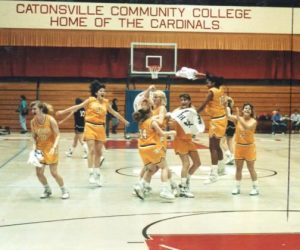
Former high school counselor and Mount Hebron girls’ basketball coach Dave Greenberg expressed that Webster was always a firecracker on and off the court.
“She was very, very good, and it was obvious that she had this potential,” said Greenberg. “She overcame whatever adversity was going on to maximize her abilities [on the court].”
Greenberg selected Webster as a member of his varsity team when she was a freshman after seeing this potential. Although she was a dangerous opponent to face in a game, he noted that what stood out most about her was that she was the complete opposite off the floor.
“She was willing to do whatever would help the team the most,” Greenberg said. “I think it was her ability to get along with everyone. There’s nobody [that] ever had a bad word [to say] about her.”
Off the court, Webster is described as a fun, thoughtful, spunky and reportedly hilarious friend, whose light is undiminished by her diagnosis.
Webster’s former teammate Erica Farley shared that even though Webster was a force to be reckoned with on the court, she holds the same “teammate mindset” for everyone in her life, believing that anyone in her corner is on her team and doing anything she can for them in return.
“She [would] always show up to play. It doesn’t matter when, where, whatever,” Farley said. “She’s always going to show up for people that are important to her.”
Webster continues to possess these attributes today. Although her ALS impedes her ability to physically do many things on her own, she is not afraid to ask for help when it comes to looking out for those she cares about.
“She always wants to be a part of things, and she still has so much that she has to give,” said Farley. “She’ll text me things that her family needs from the ICU, and I’m like, ‘Girl, what are you doing?’ She’s amazing [in] that way.”
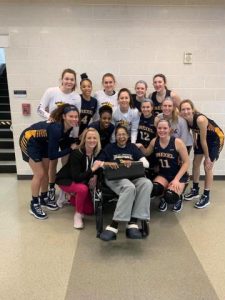
The inspiration Webster exudes does not stop in Maryland– it extends itself to Philadelphia, where the Division I Drexel University women’s basketball team and head coach Amy Mallon defend their program’s reputation.
Mallon herself played in college at the University of Richmond and Saint Joseph’s University before going on to play professionally in the American Basketball League and in women’s leagues overseas.
Mallon reconnected with Webster following her diagnosis, and after learning more about the disease, she began the tradition of hosting ALS Awareness games at Drexel with Webster in attendance.
This season, however, the Drexel women’s team was about to compete in the Coastal Athletic Association (CAA) tournament to fight for a spot in the NCAA Championship Tournament. Being a lower seed in their conference, they were not expected to get far into the tournament. But on their way down to play in the CAA conference tournament, they stopped to visit Webster in the hospital.
“I don’t know how they [the hospital staff] let us all in, but we were all able to get in and see her right before the tournament,” said Mallon. “I would say that she was like our angel during that tournament. We made a miracle run for most teams, being a seven seed, having to win four games [to advance], but we won the whole thing.”
Webster does not accept credit for being the reason for the team’s success at the tournament.
“I just said, ‘Let’s get it!’ I hope I inspired them,” said Webster. “They are a special group of ladies with an amazing coach, so no doubt they could have won it without me. But if I played some part, I’m honored and happy.”
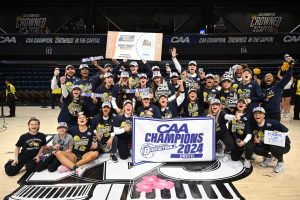
Some members of the Mount Hebron team do not remember Webster so much on the court, but it was the memories made off of the court that made an indelible mark in their lives.
Tierney Ahearn was a freshman when Webster was a senior, so many of her memories are not from moments shared on the court. She remembers Webster for her character.
“She just took it upon herself to be kind to me,” Ahearn said. “Way more than the typical senior would be to a freshman, [she] just made me kind of feel a little bit more important than I obviously was, but I felt that way, you know what I mean?”
Ahearn reconnected with Webster after their days playing together. When Ahearn found out that Webster had ALS, she reported how hard it was to see her teammate not be able to do many of the things that she could do before her diagnosis. However, she endeavored to maintain the type of friendship they always shared, not changing anything.
“What I feel like I have done for her for the last five or six years is I have come in and been the same Tierney and let her be the same Tammy as much as she could,” Ahearn said. “We laugh, we tell jokes. Some people come in and talk to her differently, and I just don’t.”
More than simply a caring friend or source of inspiration for others, Webster is known as a trickster who adores having fun.
“I remember driving in her car, and there was a song that I don’t remember the name of at all (Back to Life by Soul II Soul) … it was like, ‘Back to life, back to reality.’ And I remember driving down Frederick Road with that song blasting because she swore it said ‘Tammy Webster’ [in it],” said Ahearn.
However, Mount Hebron teammate Christy McCauley remembers the situation a little differently.
“She convinced the freshmen that it [the song] was saying Tammy Webster in the song. They all believed her. She just pulled pranks, and she was a jokester,” said McCauley.
Whether or not Webster purposefully swindled the younger players into believing her lyrical conspiracy, she certainly created a story that lives fondly in a vast majority of her teammates’ minds.
Since her ALS diagnosis, Ahearn has grown even closer to Webster, going to visit her on a weekly basis, helping her to do daily tasks or even just hanging out and goofing off.
One example of this support of her friend is through Webster’s annual basket bingo event. Most years, Webster completely organizes and runs the event herself. The proceeds from the event go towards helping Webster pay for her treatment.
Ahearn helps to execute the logistics of the event but gives full credit to Webster for planning and organizing the entire game each year.
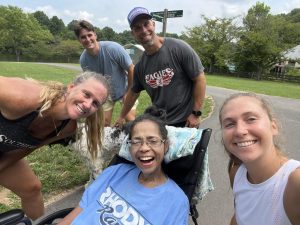
“When I show up to her house to pick her up, she’s got MapQuest [directions] with the exact order to take everyone’s pamphlets so we’re not backtracking anywhere,” Ahearn said. “Like she has everything completely organized, and she just gets me to go get a sheet off the printer that has my directions for the day,” said Ahearn.
Being able to organize events such as these and bringing all of these people from different walks of life together is what makes the events rewarding for Webster.
“She’s trapped, obviously, in this body, but she has thrived in my opinion, because she’s still so engaged,” Ahearn said. “She still finds so much purpose and still does so much to stay connected with people that I think she still feels very much like she has a lot to stick around for,” said Ahearn.
Attendees of the events reportedly come out of them refreshed after seeing their friends from so long ago.
“It’s been really beautiful to see how our Mount Hebron community, and our basketball team community in particular, have all rallied around Tammy and supported her,” said McCauley. “She’s helped bring us all together in a way.”
Though Webster no longer plays basketball herself, she remains involved in the sport in other ways.
She has coached AAU basketball for multiple different organizations in Maryland and has coached at River Hill High School. Webster also ran a women’s basketball league in which she persuaded people from ages 20 to 45 to play with each other to stay active.
Being so involved with basketball has also created connections for Webster through her ALS journey. According to her teammates from Mount Hebron, the basketball community tends to rally around one another in times of trouble, so throughout the years, important figures in the game have reached out to Webster to provide encouragement.
When the Ice Bucket Challenge was trending in 2014, bringing awareness of the disease to many for the first time, University of Connecticut men’s basketball head coach Dan Hurley completed the challenge and dedicated it to Webster.
More recently, Dawn Staley, head coach of the 2017, 2022 and 2024 National Champion University of South Carolina women’s basketball teams, made a video for Webster to encourage her.
Completely by chance, McCauley ran into Staley at a high school girls’ basketball showcase event in Pennsylvania and was able to get her to record a message for Webster.
“She’s a huge Dawn Staley fan,” McCauley said about Webster. “She [has watched] all of South Carolina’s games for years. It was like watching a kid at Christmas, watching Tammy seeing Dawn saying, ‘I love you, Tammy.’ It was just one of the most special moments I’ve ever had in my whole life.”
The one thing everyone who knows her agrees upon is that Webster has taught them to find perspective in everything, despite whatever may be going on in their lives.
“I’ve never heard her complain once,” McCauley said. “She’s been dealt a pretty crappy hand the last ten years. It’s so difficult to watch, but it’s also the way she handles it [that stands out]. She’s teaching us all life lessons by watching her.”
Similarly, Ahearn shared what it has meant to have Webster in her life, expressing gratitude for their friendship and camaraderie.
“People don’t understand,” Ahearn said. “She gives me way more than I give her.”
Webster herself attributes much of her mindset to playing basketball and being an athlete growing up.
“Being an athlete gave me my mindset, the fight, [the] toughness, [the] never give up attitude, the competition [of] me versus ALS,” said Webster.
Through her battle with ALS, Webster still manages to create lasting friendships, memories and connections, leaving her mark on countless people. But Farley believes this support would have come up behind Webster no matter what team she was on in life.
“The basketball community is like that– when you’re in it, you’re in it.”
Tragically, ALS has a 100% mortality rate. Approximately 20% of those diagnosed live five years after diagnosis, 10% survive 10 years and only 5% five percent live 20 years or longer.
Webster has shown her friends, family and even those that live hours away that perseverance, grit and community are the true qualities of those that succeed, whether it be in athletics or in one’s own life.
But above all, she has shown that defying the odds is possible, and she does it with a smile on her face.
“There’s never a day she doesn’t have a smile on her face for you,” Farley said. “And I feel like that’s the piece that sports has taught her. She really does cherish all the small steps in there along the way and the relationship[s] she’s made.” There’s never a day she doesn’t have a smile on her face for you,” — Erica Farley




